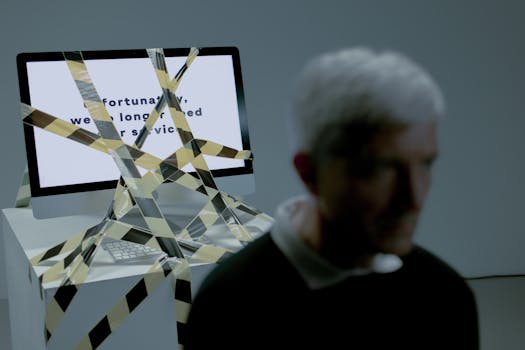Career advice
Mastering the Follow-Up: Stand Out After Your Job Interview in SA
Discover effective strategies for following up after a job interview. Learn when and how to communicate to enhance your candidacy and make a lasting impression.
Advertisement
After attending a job interview, candidates often feel a mix of excitement and anxiety. The waiting period can be nerve-wracking as you anticipate feedback from your potential employer. Following up effectively allows you to reaffirm your interest and stand out in a competitive job market.
However, knowing how and when to follow up after a job interview can be tricky. There’s a fine line between being proactive and being overly persistent. By mastering the art of the follow-up, candidates can create a favorable impression, demonstrating their professionalism and genuine interest in the position.
In this article, we will delve into effective strategies for following up after a job interview. Whether you’re looking to send a thank-you note or inquire about the status of your application, we will cover the crucial elements of a successful follow-up.
Understanding the Importance of a Follow-Up
A follow-up is a significant aspect of the job interview process. It provides an opportunity to reinforce your interest in the role. Furthermore, it serves as a chance to address any points that may have been overlooked during the interview.
Not only does a well-timed follow-up help you remain memorable, but it also showcases your professionalism. Employers appreciate candidates who take the initiative to thank them for their time.
Additionally, a follow-up allows candidates to clarify any answers given during the interview. If your response was not entirely clear, you can use this opportunity to elaborate or provide further insight.
Moreover, it reflects positively on your communication skills. Employers seek candidates who effectively express themselves, making follow-ups a vital part of your candidacy.
In summary, a thoughtful follow-up plays a vital role in the interview process. Consider it an essential step toward building a strong relationship with future employers.
Timing Your Follow-Up
Knowing when to follow up is as crucial as the message you send. The timing can significantly influence the impression you create. Generally, it’s best to wait about 24 to 48 hours after the interview to reach out.
This timeframe gives the interviewer time to process your interview while still keeping your application fresh in their mind. However, ensuring you don’t wait too long is important, or your message may fall flat.
Moreover, consider the interviewer’s timeline for making a decision. If they mentioned a specific date for their decision, you might choose to follow up on that date or a day later.
In some cases, such as large organizations, it may take longer to receive feedback due to multiple interview rounds. Adapt your follow-up approach based on what you perceive as suitable timeframes within the organization.
Ultimately, paying attention to timing shows your understanding of professional etiquette. A well-timed follow-up can make a positive impact on your candidacy.
Crafting the Perfect Follow-Up Message
The follow-up message should be concise yet informative. Start by addressing the interviewer by name to add a personal touch. This simple act fosters a connection between you and the employer.
Begin your message by expressing gratitude for the opportunity. Mention something specific from the interview that stood out to you, showing you were engaged during your conversation.
Keep your message focused and straightforward. Highlight your key qualifications again and reaffirm your enthusiasm for the role. This reminds the interviewer why you’re an excellent fit for the position.
Conclude by inviting them to reach out with any further questions. This ensures your willingness to engage in ongoing communication and shows confidence in your ability.
Lastly, don’t forget to proofread your message for errors. A polished message reflects your attention to detail and professionalism.
Using Email vs. Other Communication Methods
Email is the most common method for following up after an interview. It is professional, allows for easy tracking, and gives the recipient time to respond at their convenience.
That being said, consider other forms of communication if they were used during the interview process. If contacted via phone, a brief call may be appropriate, though it should be approached carefully.
Furthermore, if the company has a specific protocol for follow-ups, adhere to it. Following their guidelines demonstrates your ability to follow directions effectively.
While some candidates may be tempted to reach out via social media, this should generally be avoided. Reserve professional platforms strictly for job-related communication.
Ultimately, choosing the right method of communication ensures your message is well-received. Prioritize professionalism in every form of outreach.
Addressing Concerns or Follow-Up Questions
If you left the interview with any concerns or unanswered questions, the follow-up message is a perfect time to address them. Approach this delicately, either mentioning your query in the email or expressing your willingness to clarify further.
For instance, if you felt you didn’t articulate your experience adequately regarding a specific question, briefly readdress that point. Clarification adds depth to your candidacy and shows your commitment to transparency.
However, remain cautious not to come off as needy or overly critical. Frame your questions positively to maintain an impression of professionalism.
If you have additional questions about the role or company culture, ask them respectfully. This illustrates your genuine interest and proactive mindset as a potential employee.
Remember, the follow-up is an extension of your interview. Emphasize your strengths and address any concerns thoughtfully.
Understanding the Follow-Up Process Across Different Industries
The follow-up process can vary widely across different industries. For instance, in fast-paced environments like tech startups, follow-ups may require a quick turnaround due to rapid decision-making.
Conversely, in corporate environments, follow-up times might extend longer due to bureaucratic processes. Tailor your approach based on your industry’s standard practices and expectations to navigate this effectively.
Researching and understanding industry norms can give you an edge when deciding how to communicate your follow-up. This can also reflect your knowledge about the sector rather than showcasing a generic approach.
Additionally, connect with professionals in your field to gather insights into their experiences with follow-ups. This anecdotal evidence can guide you in cultivating a more successful follow-up strategy.
This understanding will not only enhance your communication but also build rapport within your industry. Being aware of specific patterns can put you a step ahead in your job search.
Table: Follow-Up Timeline After Interview
| Day | Action |
|---|---|
| 1 | Send a thank-you email to the interviewer. |
| 3-7 | Consider following up for any status update if no response. |
| 1-2 weeks | If no response, engage politely again to inquire. |
| 2-4 weeks | Final check-in if you still haven’t heard back. |
Conclusion
In conclusion, following up after a job interview is a crucial element in your job search journey. It enhances your candidacy, reinforces your interest, and showcases your professionalism.
Timing matters, as does crafting a thoughtful and concise message. Be proactive in addressing any concerns or questions and select the appropriate medium for outreach.
Every interaction during your job search, including your follow-up, should reflect your best self. By understanding the follow-up process, you place yourself in a better position to secure the job you desire.
With the strategies outlined here, you’ll be well-equipped to navigate the nuances of post-interview communication. Confidence and clarity in your follow-up approach will go a long way in leaving a memorable impression.
Ultimately, remember that patience paired with professionalism is key. Treat every follow-up as an opportunity to shine and solidify your candidacy.





